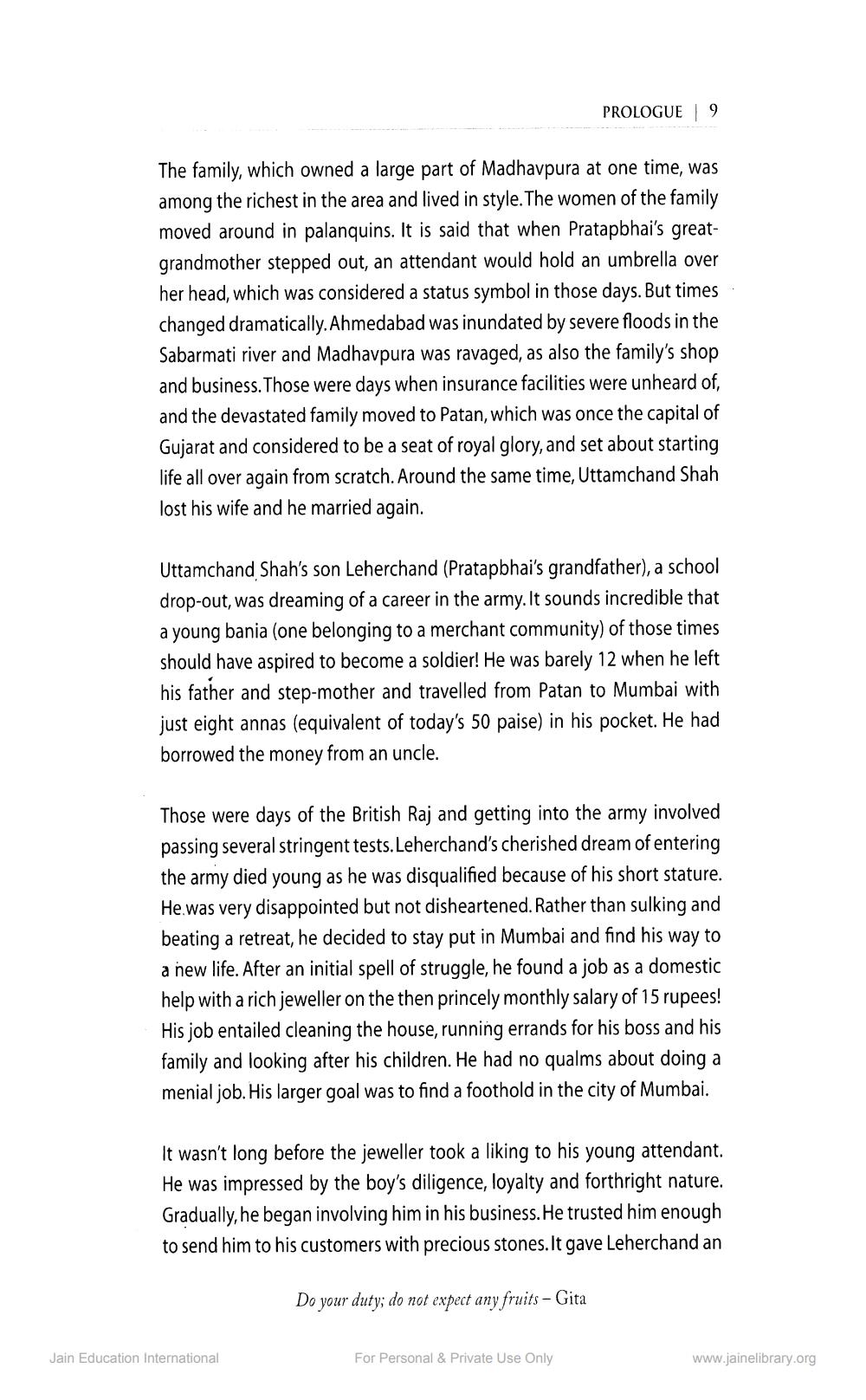________________
PROLOGUE
9
The family, which owned a large part of Madhavpura at one time, was among the richest in the area and lived in style. The women of the family moved around in palanquins. It is said that when Pratapbhai's greatgrandmother stepped out, an attendant would hold an umbrella over her head, which was considered a status symbol in those days. But times changed dramatically. Ahmedabad was inundated by severe floods in the Sabarmati river and Madhavpura was ravaged, as also the family's shop and business. Those were days when insurance facilities were unheard of, and the devastated family moved to Patan, which was once the capital of Gujarat and considered to be a seat of royal glory, and set about starting life all over again from scratch. Around the same time, Uttamchand Shah lost his wife and he married again.
Uttamchand Shah's son Leherchand (Pratapbhai's grandfather), a school drop-out, was dreaming of a career in the army. It sounds incredible that a young bania (one belonging to a merchant community) of those times should have aspired to become a soldier! He was barely 12 when he left his father and step-mother and travelled from Patan to Mumbai with just eight annas (equivalent of today's 50 paise) in his pocket. He had borrowed the money from an uncle.
Those were days of the British Raj and getting into the army involved passing several stringent tests. Leherchand's cherished dream of entering the army died young as he was disqualified because of his short stature. He was very disappointed but not disheartened. Rather than sulking and beating a retreat, he decided to stay put in Mumbai and find his way to a new life. After an initial spell of struggle, he found a job as a domestic help with a rich jeweller on the then princely monthly salary of 15 rupees! His job entailed cleaning the house, running errands for his boss and his family and looking after his children. He had no qualms about doing a menial job. His larger goal was to find a foothold in the city of Mumbai.
It wasn't long before the jeweller took a liking to his young attendant. He was impressed by the boy's diligence, loyalty and forthright nature. Gradually, he began involving him in his business. He trusted him enough to send him to his customers with precious stones.It gave Leherchand an
Do your duty; do not expect any fruits - Gita
Jain Education International
For Personal & Private Use Only
www.jainelibrary.org




